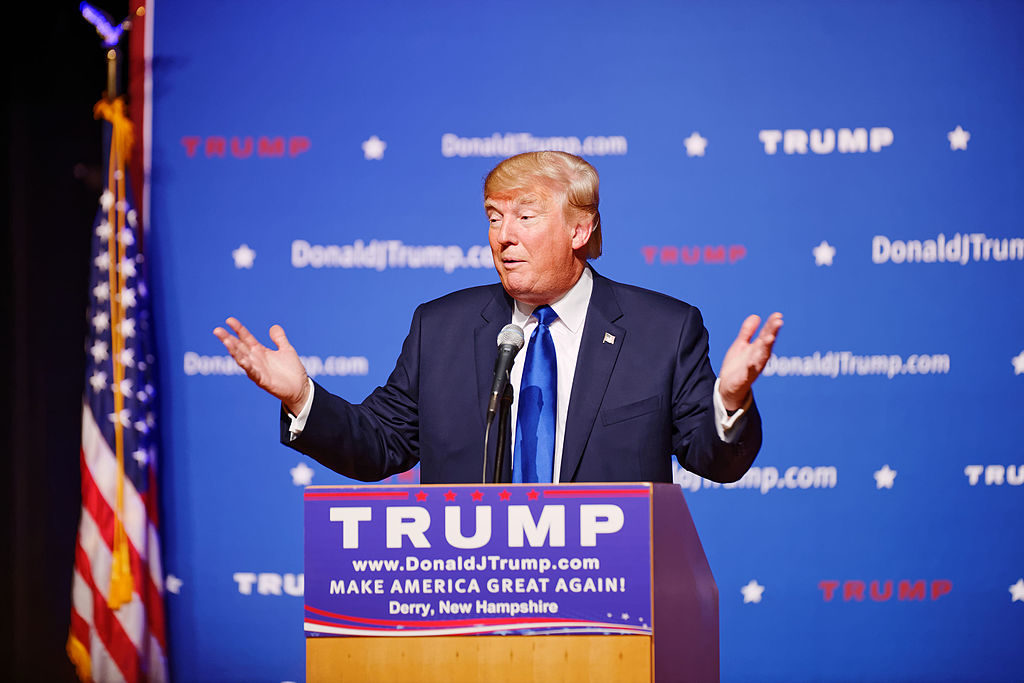Over the last year and a half we have witnessed the pyrrhic victory of the Republican Party. Yes, Donald Trump was elected president, but less than half the population of the nation voted, he lost the popular vote by nearly 3 million votes (less than a quarter of Americans voted for Trump), was definitively helped by foreign influence, and his campaign appealed to the darkest forces in American culture and history. Trump literally announced his presidency by calling the largest community of the largest minority group in the United States criminals and rapists.
In June of 2015 when Trump made his announcement, he was seen as a joke, a reality TV sideshow that had broken the fourth wall and made a crossover into real politics. Then Trump won. He won the nomination of a party that at one time presented itself as the pragmatic, solution based party of Americans with center-right predilections but was not composed of ideologues. But beginning in the early 2000s, Republicans moved farther and farther away from the center and became more ideologically rigid. Even as the party moved to the right under George W. Bush, it seemed that key leaders of the party kept the most dogmatic and problematic ideas at bay. Then with the election of Barack Obama in 2008, the most radical forces within the party were unleashed and won power. The Tea Party ignited interest at the state level and helped transform the leadership of the GOP. Much of the Tea Party base were not constitutional scholars, but were motivated by the notion that then President Obama was a Muslim, Kenyan citizen who wanted to destroy the constitution.
The most ideologically rigid and absurd became the most popular figures in the party, even as they became the most incoherent. In 2008, vice presidential candidate Sarah Palin could not articulate American foreign policy, nor construct a complete sentence, but she was wildly more popular among the base than John McCain. The Tea Party which was supposed to be constitutional libertarians often staked out socially conservative positions that they promised to protect through constitutional revisions and amendments. In 2011, presidential hopeful Rick Perry ran on a promise to eliminate governmental and bureaucratic bloat. Yet, he could not name three governmental agencies he would eliminate.
Finally, Trump came in 2015. Trump lacked principles. He lacked a framework for making difficult decisions. He lacked a basic understanding of national and international problems. Instead he had grossly simplistic tweets. Trump’s inability to speak in complete sentences without a teleprompter led to completely incoherent debate performances and speeches. His fragments and non sequiturs made it difficult for journalists to transcribe his speeches. He constantly reversed his positions. He refused to hold press conferences and when he answered questions, his incomplete answers revealed only scattered and unfinished thoughts.
Yet, many Republicans who did not like Trump assuaged fears. They promised that a unified government would take control in 2017. Leaders like Paul Ryan and Mitch McConnell, who kept Trump at arm’s length, celebrated his victory and encouraged others to do so. An under-informed president was not a bad thing, they reasoned, because they could teach him. Establishment Republicans would not be sycophants, but astute pedagogues, teaching Trump the correct conservative answers to all the problems.
Over the last two weeks, we have seen the collapse of this possibility. Trump has put forward one of the least qualified cabinets in U.S. history. People with no experience in running large bureaucracies and no experience in the fields they will oversee showed their ignorance. Betsy DeVos could not elaborate on the educational debate between growth and proficiency. Ben Carson, a neurosurgeon, has no experience whatsoever in housing policy. Rick Perry did not have an idea of the Energy Department actually did. Years before he believed it should be eliminated. When he was finally told the responsibilities of the department, he regretted ever pushing for its elimination. Rex Tillerson claimed he had not lobbied on behalf of Russia despite conclusive evidence that he had indeed made phone calls to the very senators who were questioning him. Jeff Sessions despite a long record of supporting policies that had racist outcomes, claimed he could not be called a racist because that term hurt his feelings.
Conservative presidents appoint conservative cabinet secretaries, but Trump’s nominees do a disservice to the actual conservative causes they are supposed to represent. There is an intelligible argument that can be made for school choice, DeVos cannot make it. There are certainly people in this nation who can, but Trump did not put them forward. There are conservatives with the actual scientific knowledge on how best to manage our nuclear arsenal—Reagan, George H.W. Bush, and George W. Bush appointed some—Perry does not. He barely graduated from college with a degree in animal husbandry. There are conservatives with a strong understanding of housing policy and possible changes, Carson does not.
There are informed people who can make intelligent arguments for conservative positions. Unfortunately, they are no longer leading nor representative in the Republican Party. The party’s standard bearers are former reality TV stars and D list celebrities with a large twitter following who can use 140 characters and hashtags easily but cannot sustain intelligent conversation. Sadly, the Republican Party has gone from a big tent to a dangerous circus.
Photo via wiki commons.



Leave a Reply